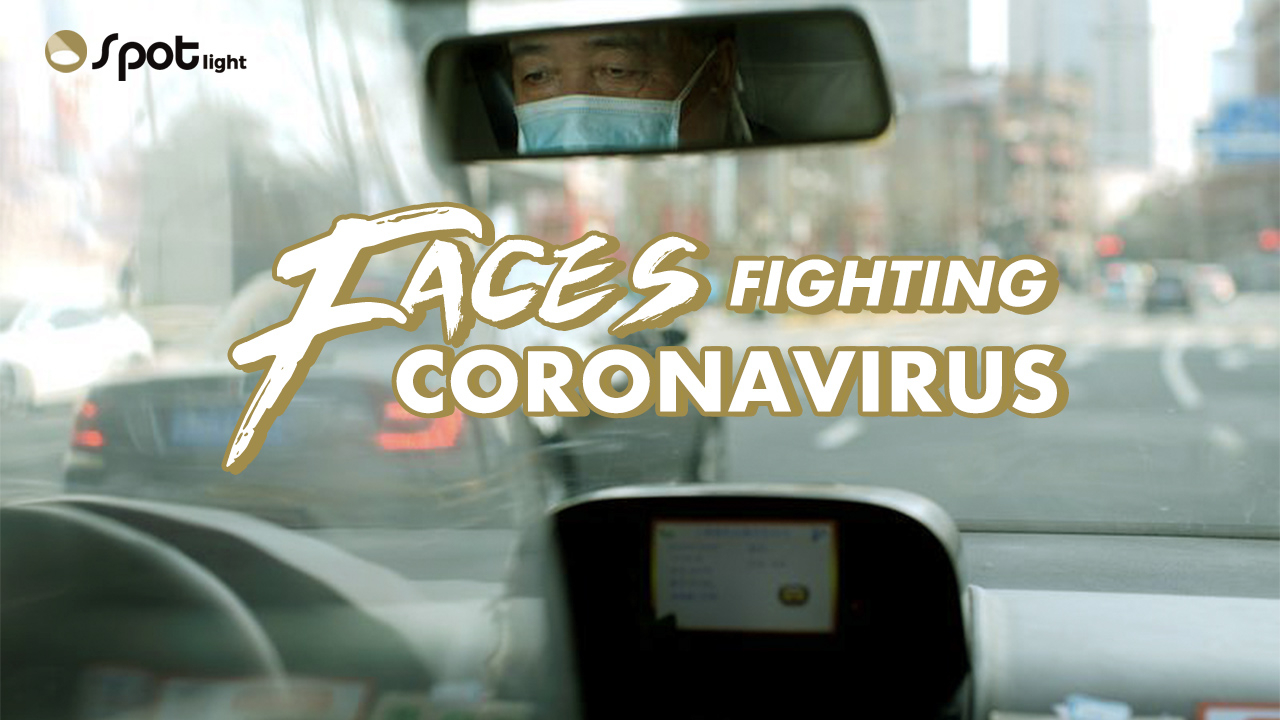
This is the third episode of our series "Faces Fighting Coronavirus" chronicling people from different walks of life who are affected by the outbreak as well as those who are trying to keep their lives as normal as they can to keep our society running. Here you can find the first and the second stories.
Our third episode shows what it's like to make a living on the road while others stay in.
The streets of Beijing are slowly waking up from an extended Lunar New Year holiday, as millions return to work amid the novel coronavirus outbreak. To minimize the risks of cross-infection, residents have been advised to stay indoors and office workers encouraged to work from home.
But not everyone has that option. For tens of thousands of taxi drivers in the city, the extra-long holiday overshadowed by epidemic fears is bad news.
Wang Qiang had been on the road since 4:30 a.m. He took the usual precautions: Face mask and gloves on, windows open, and disinfecting the car's interior after dropping each passenger off. By evening, he made a little over 300 yuan (43 U.S. dollars), after driving around the capital for more than 12 hours. This was a good day.
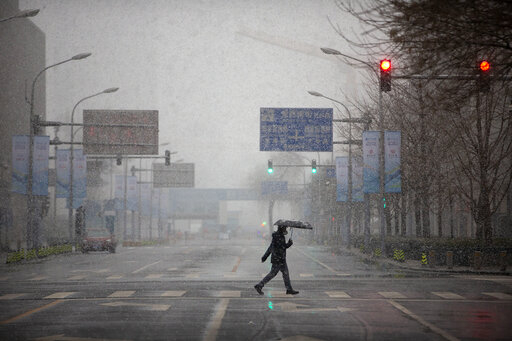
A morning rush hour as snow falls in Beijing, February 14, 2020. /AP Photo
A morning rush hour as snow falls in Beijing, February 14, 2020. /AP Photo
On a regular day, Wang said he can make 500-600 yuan. Now since people haven't been leaving their homes, the 47-year-old has seen his daily earnings halved, he told CGTN.
Drivers like Wang have to shell out a management fee of some 200 yuan a day on average to taxi companies in order to operate the vehicles, whether they are working or not. Setting aside the basic expenses, including gas, there is little if anything left for the driver to take home over the last few weeks.
"I see no one hailing taxis from the street or on the internet. In the last hour I haven't had one passenger. And the car is burning gas," Wang said.
Yet he still considers himself more fortunate than those drivers living far away from the city. "Some of them can't even come out to work because their villages have been sealed off (to control the spread of the virus)," he said.
When business is slow and many services disrupted, each day on the road can feel like an uphill struggle. Wang said he eats once a day at home after work because there was hardly an open restaurant in the city.
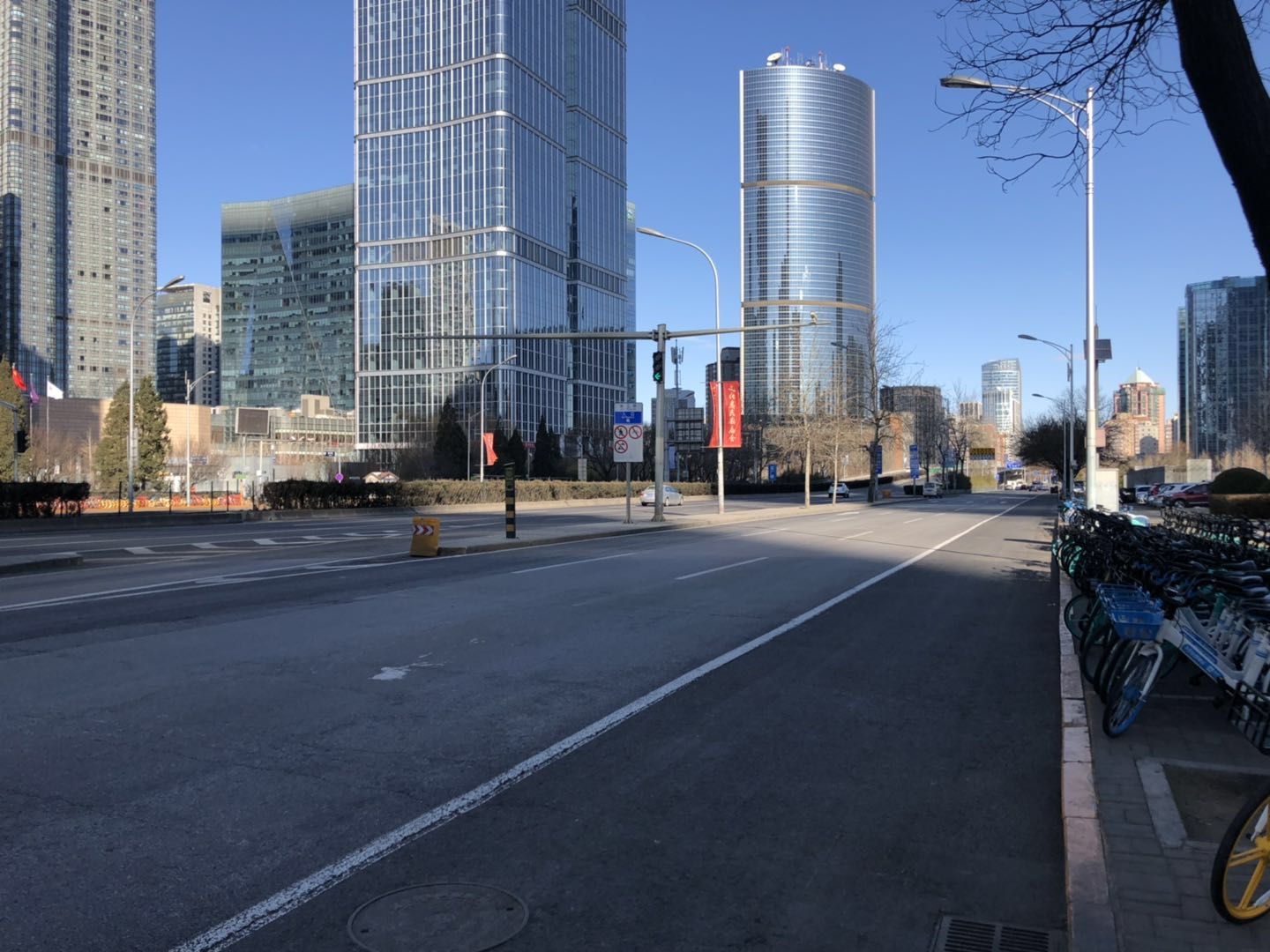
A week into work, Beijing's central business district is still empty and quiet. /CGTN Photo
A week into work, Beijing's central business district is still empty and quiet. /CGTN Photo
Another driver, Zhang Shouxing, said the thought of his cab breaking down – not the coronavirus – is on his mind.
"The car has got a problem but there is nowhere to fix it at the moment. If I call a repair shop, no one will be there to answer," Zhang said. "Then I could get a parking fine."
Zhang said these issues are affecting taxi drivers all over the country. In Shanghai, taxi companies have lowered the rental fee by 80-120 yuan a day to ease drivers' burden. More cities are following suit with reductions, some more substantial than others.
Last week, one city in east China's Zhejiang, another province hard-hit by COVID-19 outbreak after Hubei, waived the fee for drivers who are sickened by the coronavirus or unable to work due to quarantine measures.
Drivers in Beijing are still awaiting a decision on a bailout, Zhang told CGTN.
A handful of taxi companies own all registered cabs in Beijing, as in 85 percent of Chinese cities.
Taxis contributed 28 percent of all traffic flow in China's cities. But the drivers have been scrambling to save their livelihoods for years since ride-hailing apps have become mainstream in the country.
That doesn't mean their jobs are less important, especially in times of crisis. After the lockdown of Wuhan, the epicenter of the coronavirus outbreak, 6,000 local taxis have been enlisted to serve as emergency vehicles for communities citywide. Under an effective transport ban, these designated taxis can be a life saver for those in need of medical attention.
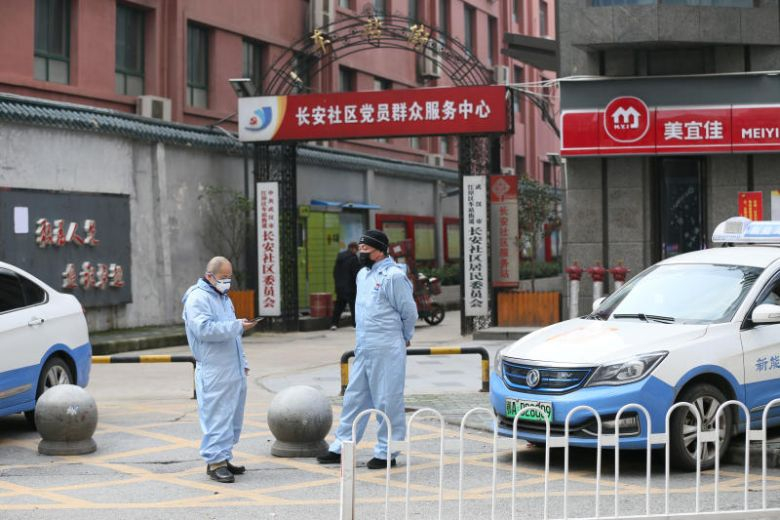
Taxi drivers in protective suits wait in front of a residential area in Wuhan, Hubei Province, January 28, 2020. /Reuters Photo
Taxi drivers in protective suits wait in front of a residential area in Wuhan, Hubei Province, January 28, 2020. /Reuters Photo
With people returning to work, it also means more competition for customers from private drivers, who share the same ride-hailing platforms with taxi drivers to receive online bookings but offer more options in terms of price and comfort. "More private cars in the street means less jobs for us," Wang noted.
In the wake of the outbreak, these jobs come with increased risks of contracting the deadly coronavirus. While most workers are told to avoid close proximity with other people, taxi drivers are lining up to pick up passengers in crowded places. For many, money is not the only concern.
A driver surnamed Jiao told CGTN that he was reluctant to be back on the road, because the last thing he wants is putting his 10-year-old son at risk of infection. "I'm not afraid of getting infected. It is my kid I'm worried about," he said.
Jiao's company is providing drivers with face masks and gloves to persuade them to resume work as soon as possible.
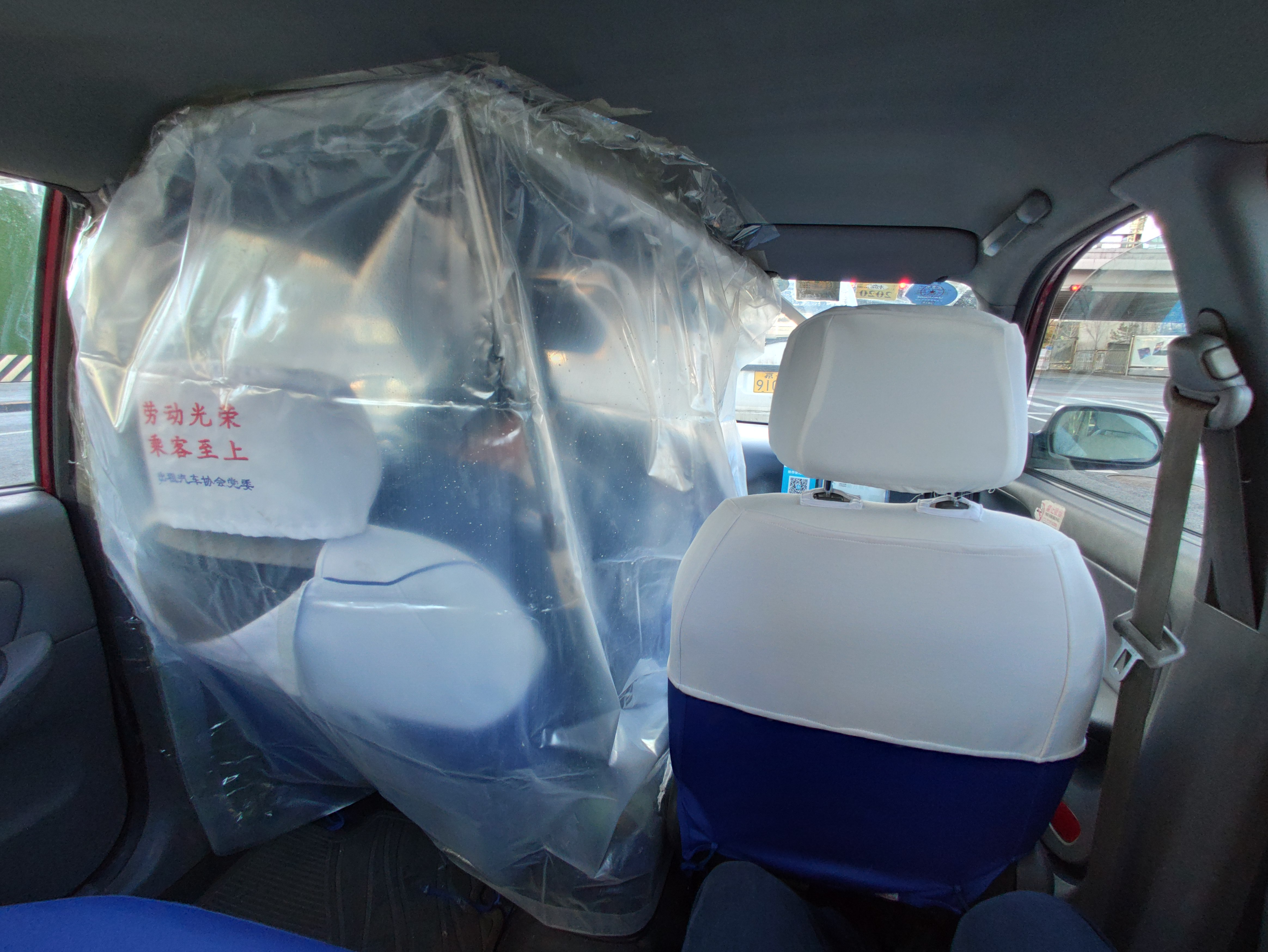
A taxi driver wraps his seat with plastic sheet for protection in Beijing, February 16, 2020. /CGTN Photo
A taxi driver wraps his seat with plastic sheet for protection in Beijing, February 16, 2020. /CGTN Photo
There might be a silver lining to the situation after all. Commuters coming back to work this week are reportedly finding it harder to book a ride through a hailing app, as many people now favor taxis over public transport for more peace of mind.
As for the driver, every stranger that gets in the car brings new unknowns.
"All I can do is to be more careful myself," Wang said. "Just stay well, and not cause any trouble for society."
(Yang Xuemin and Wang Xiaonan also contributed to this story. Top photo by Reuters.)